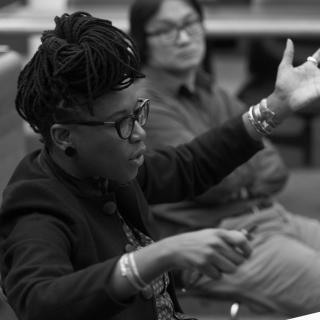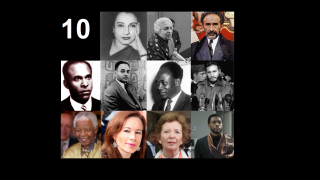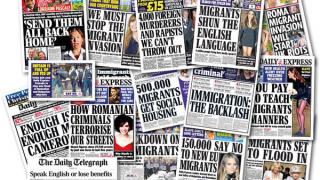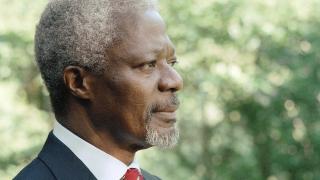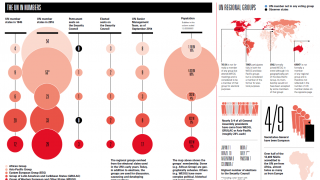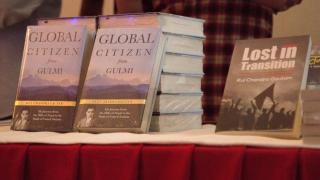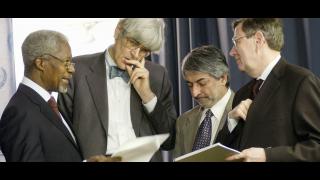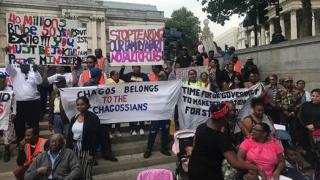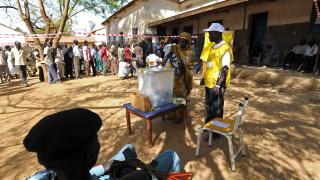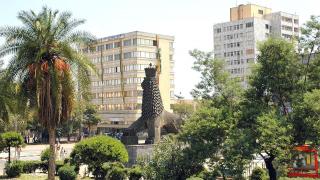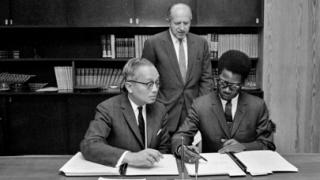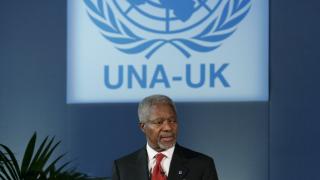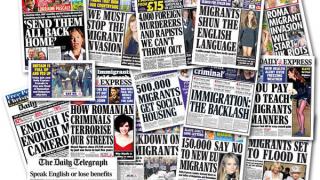
UNA-UK speaks to E. Tendayi Achiume
You were appointed as the UN Human Rights Council’s independent expert on racism last year. What does your mandate cover, and how do you prioritise work over such a large and important agenda?
My mandate addresses the profound challenges that racial and xenophobic discrimination pose today. This includes obvious and direct discrimination, of course, but also less obvious, structural or indirect forms of racism. By using an intersectional lens, my mandate brings into focus intentional and unintentional forms of discrimination and disproportionate harms across gender, religious beliefs, sexual orientation, citizenship, migration status or other elements associated with identity and social status.
I strongly believe in enabling local actors and communities on the frontlines of discrimination and exclusion to help set my mandate’s priorities. I have spent much of my first year in the mandate listening to, and learning from, these communities and their advocates to understand what their priority issues are.
My team and I typically draw on consultations with these groups and with state representatives to identify gaps that exist between how global human rights frameworks are deployed and these lived accounts of vulnerability and suffering. I then prioritise my work according to which legal clarifications I think are critical to ensuring that international human rights law operates in service of, and becomes increasingly responsive to, those on the ground.
How have you seen the issues you address change over your first year in the role?
One of the most remarkable changes I have seen over the past year concerns states’ appetite for misguided solutions to structural forms of racism. States are increasingly trying to address problems of racial discrimination with legislation that is race-neutral or race-blind, with some even removing the term this legislation is disingenuous, an attempt to mask intentional racial discrimination that arises from the application of the law.
Where such legislation is not disingenuous, states operate on the mistaken and dangerous basis that they can fix deep-seated discrimination – be it in service provision, migration policy or in the enjoyment of full human rights – simply by adopting race-blind measures. The next few years of my mandate will have to include making clear why such an approach is a serious problem.
How do states and civil society try to influence you and you them? How do you effect change? Does resourcing constrain you?
States and civil society largely try to influence my role through written submissions, through our interactions in country visits and through consultations. Quite often, their influence is meant to convince me that a particular issue requires immediate attention. Sadly, some states also attempt to convince me that a certain form of racial discrimination is not actually discriminatory, or is outside my mandate.
I attempt to influence states and civil society through a combination of continued engagement and careful research. I see my role as Special Rapporteur mostly as a conduit: a mechanism to amplify voices that do not have adequate representation or do not receive adequate attention from their state or from the UN in Geneva. Most of the change I help to effect arises from engaging with those voices and then using my mandate to identify and accelerate effective human rights responses for which local communities are already fighting.
I also hope that my thematic reports will support changes over time. I have taken care to focus on urgent matters or matters where additional clarity in the human rights framework is necessary. I hope that careful explanation of applicable human rights law will enable further discussion, provide states with a better understanding of their human rights obligations and facilitate grassroots-driven change.
The mandate’s broad scope certainly exceeds the resources to which I have access and unfortunately limits my activities as Special Rapporteur. To maintain the independence of Special Rapporteurs, we receive limited funding (and no remuneration) to carry out our mandate. Although my team is careful to stretch our funding as far as we are able, the resource shortages mean we convene far fewer state and civil society consultations than I think are necessary to understand and address the global state of racism and xenophobia.
You recently visited the UK. What did you find?
I visited the UK from 30 April to 11 May and issued comprehensive preliminary findings that are publicly accessible on my mandate webpage. I had the opportunity to discuss some of these findings with representatives of the UK Government. During this meeting, I praised the UK’s anti-discrimination legal framework, and commended the Government’s recent Racial Disparity Audit initiative. I did, however, express my alarm at the racially discriminatory impact of austerity measures, immigration law and policy, counterterrorism law and policy, and criminal justice law and policy. My consultations with civil society revealed horrifying experiences of intentional and structural forms of racial discrimination that require urgent attention from the UK Government.
Although some of the media coverage of my visit represented it as focusing largely on Brexit, I cannot stress enough that my analysis and findings spoke to historically rooted structures of exclusion and discrimination that pre-date the EU referendum, even if the recent political climate has exacerbated these dynamics.
My visit revealed to me the significant differences in the experiences of racial and ethnic minorities living in the four nations that comprise the UK, and the difference in political will among the governments of these nations to address racial inequality. I will present my full report to the UN Human Rights
Council in July 2019.
There was a predictable but disappointing response to your visit from sections of the UK media. Do negative reactions of this kind undermine your work? How do they alter perceptions of the UK?
The media are powerful actors and have a responsibility to perform their work ethically. This includes truthful and accurate reporting. Criticism and dissenting opinions are a welcome and important part of public discourse and dialogue, but the media has a responsibility to ensure that the criticism, dissent or any other information they disseminate is accurate and definitely not racist. Certain media sources purposefully mischaracterised my visit as an attempt by the UN to scold the UK, when in fact my visit was at the invitation of the UK Government itself. I can never conduct a country mission without the invitation of that government. Furthermore, my role is that of an independent expert. I cannot and do not speak for the UN.
I found it telling and deeply regrettable that on a mission to investigate conditions of racial equality in the UK, I myself became the target of racist media coverage. I do have to emphasise, however, that the racist coverage was countered by exemplary journalistic practices by other UK media outlets that
provided truthful and accurate information about my visit and the issues I raised.
Preliminary findings from E. Tendayi Achiume's visit to the UK can be found here.
Photo: Global Justice Now have been collecting racist media headlines as part of their call on press regulator to hold inquiry into racism in the UK media. Credit: Global Justice Now.

